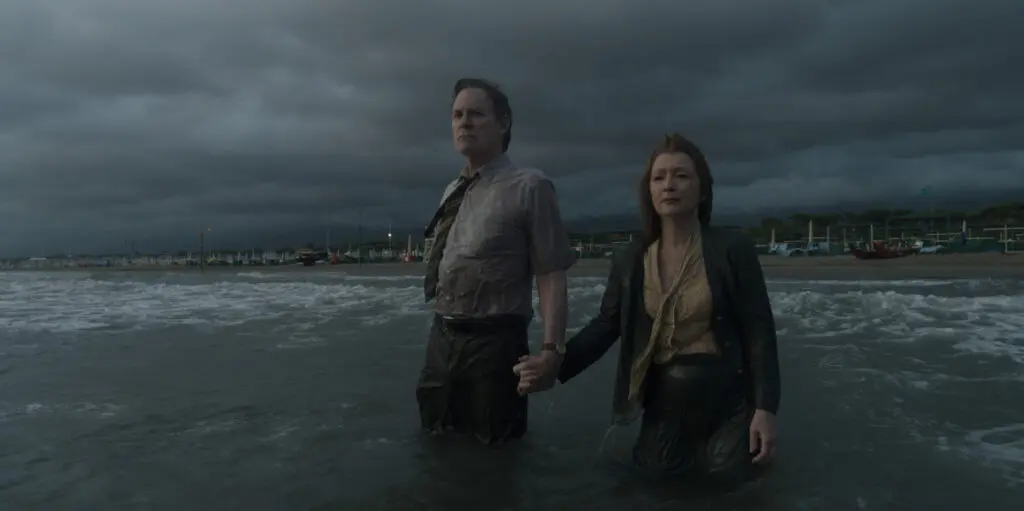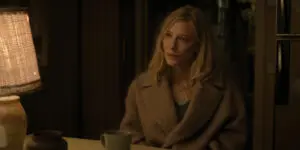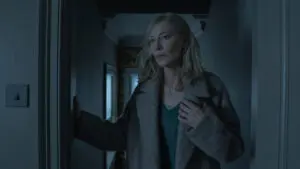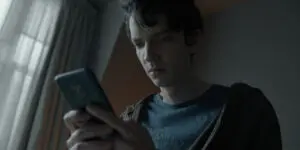Summary
Disclaimer remains rich in mystery and style in Episodes 3 & 4, and even though the pace sags a little, the sheer quality keeps it engaging.
Episodes 3 & 4 of Apple TV+’s Disclaimer – titled, simply, “III” and “IV” – have a hazy, dreamlike quality to them, which is very much intentional. As with the first two episodes it unfurls across three timelines and from multiple perspectives, but after some of the revelations in Episode 2, everyone is ambling in a post-truth gloom, like they’re awaiting an impending disaster.
Stephen can’t wait for this disaster, since it’ll be a long-overdue reckoning for Catherine Ravenscroft, who from his perspective has gotten away with having killed, in one way or another, his son Jonathan. For Catherine, she spends every day feeling as if an asteroid is hurtling toward Earth, always moments away from devastatingly impacting not just her life but that of her husband, Robert, and son Nicholas, both of whom are ostensibly innocent bystanders.
The primary difference between these two episodes and the first two is the balance of perspective and the underlying tone. Present-day Catherine and Stephen get much less time in the spotlight, while sultry seductress Past Catherine and Jonathan get significantly more. A lot of time is spent in the immediate wake of Jonathan’s death, but framed in the perspective of Stephen’s late wife, Nancy, played with brutal distress by Lesley Manville.
Cuaron, aided by cinematographers Emmanuel Lubezki and Bruno Delbonnel, wavers between intense sexuality and grief, but saves an oppressive terror for the end of Disclaimer Episode 4, when we see Jonathan drown and Catherine watch him expire from a distance, preferring that outcome than to the one he had suggested, which was to follow her home to London.
I have a theory about Disclaimer, which is that I think what we’re seeing in the past is the events of The Perfect Stranger, the novel Nancy wrote to process her grief but pin the blame for her loss on Catherine. It’s all the show’s allusions to literary stylings – the narration, the POV switching, the chapter-like episode titles – that give me this impression, and I think it’s important for one key reason: Nancy wasn’t there. She couldn’t have known the most intimate details of what happened in Italy; what Jonathan’s relationship with Catherine looked like, or how he really died. And this is important since if this is the case it means everything we’re seeing might not be what actually happened.

Louis Partridge as Jonathan Brigstocke in “Disclaimer” | Image via Apple TV+
I think this would also explain the tone of Catherine’s seduction of Jonathan, which depicts her almost as a femme fatale, someone preying on a much younger, much more inexperienced man for her own gratification. Jonathan is largely coached throughout all of it. It’s Catherine who blurs the line between a fantasy about a pop star and one about her. It’s Catherine who arranges their first meeting in her room (with Nicholas asleep nearby.) It’s Catherine who asks him to stay in Rome another day, who tells him what she wants him to do and how to do it; it’s almost always her receiving pleasure instead of giving it.
This is exactly, I think, how a grieving mother would imagine an affair between her son and an older woman. At one point, Nancy tries to drown herself in the bath to simulate what Jonathan might have been feeling in his final moments. Was she doing that through The Perfect Stranger? Was she embellishing the entire story to suit a narrative she had developed in her head that vilified Catherine? Is Catherine’s fear not that she might be exposed for something she did, but for something she didn’t do at all?
If Robert was also reading the events we’re seeing, written exactly as we’re seeing them, that would, I think, explain his confusion over them; not just the sense of betrayal, but why his anger is tinged with a bit of lust and jealousy. Perhaps the reason he finds this version of his wife so alien is because she doesn’t exist; it’s a bitter fiction that he’s being duped by.
The strength of these questions keeps Disclaimer going through Episodes 3 & 4, even though little happens in them that we didn’t already know about, and a good chunk of what we do see might be inaccurate. The pace sags a little in “III” and “IV”, but again almost by design. Nancy’s descent through the layers of her grief is particularly poignant because she never recovers from it; when she reaches the bottom, cancer finds her. By that point. she has moved into Jonathan’s old room. When she dies, she’s buried next to him, leaving no room for Stephen, who will be buried alone. There’s no wonder he’s annoyed.
Read More: Disclaimer Episode 5 Recap




